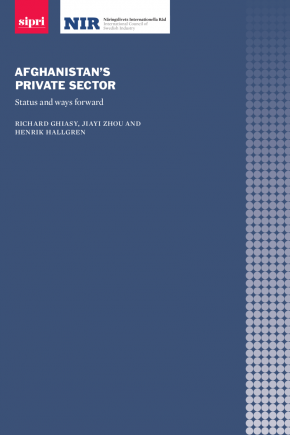Afghanistan's Private Sector: Status and Way Forward

Afghanistan’s economy has a complex mix of informal, formal, illicit and aid-sustained elements. This is foremost the product of a decades-long convergence of protracted conflict, low state capacity, foreign interference and external aid dependence. The formal Afghan private sector contributes a mere 10–12 per cent to the country’s official gross domestic product. In its current state, the Afghan private sector is not the engine of economic growth or instrument of social inclusion it has the potential to be. Popular dissatisfaction with unequal access to economic resources, flawed public services and goods, the adverse security situation, and predatory government activity undermine an effective and sustainable private sector.
There is a prospect of reversing this dynamic. The Afghan private sector could, in addition to leading economic growth, contribute to improving human and traditional security conditions in the country. Immediate action by the Afghan Government is needed to catalyse this process. The Afghan Government will need to create a more facilitating environment for the private sector, particularly for the many disadvantaged smaller players that form the bulk of the economy. In light of weak state capacity as well as the dismal fiscal outlook new partnership modalities with the private sector are recommended. Support from the international community through private sector development (PSD) will still be needed. However, a number of critical conditions for effective PSD apply.
This Swedish International Development Cooperation Agency (Sida) funded report is the product of a one-year field and desk research study of the state of the private sector in Afghanistan and its nexus with development and security. Based on the study’s findings, this report provides input on how the Afghan Government, national stakeholders and the international community could facilitate a more inclusive, productive and competitive Afghan private sector. The findings are likely to be of interest to all stakeholders in Afghanistan’s reconstruction.


